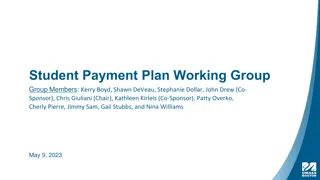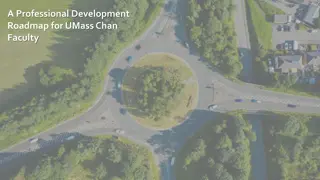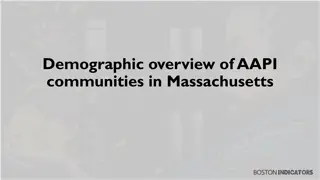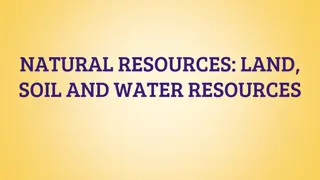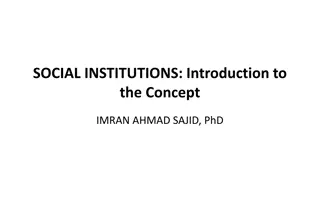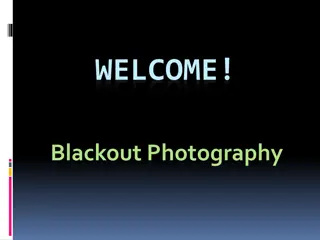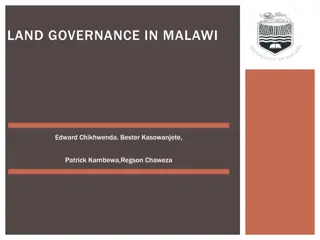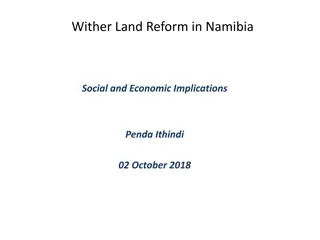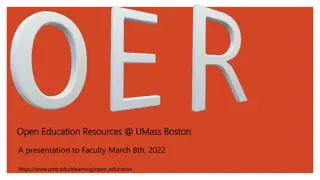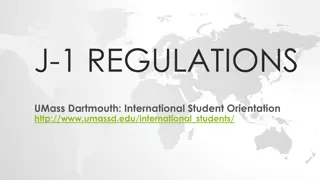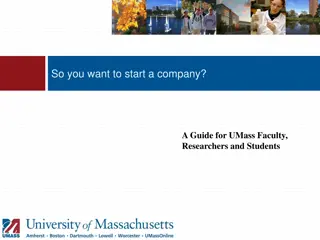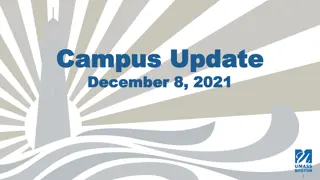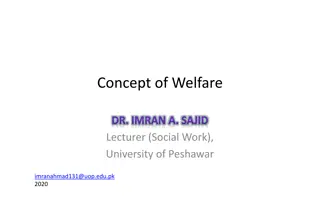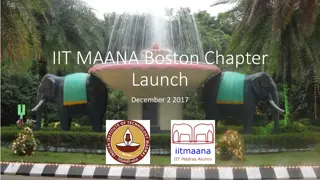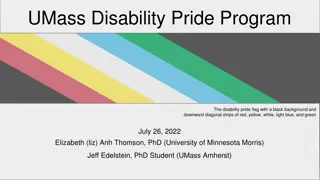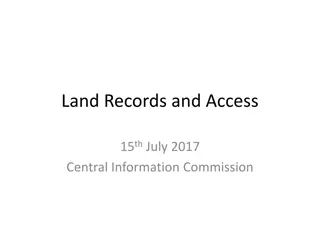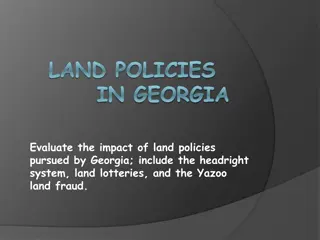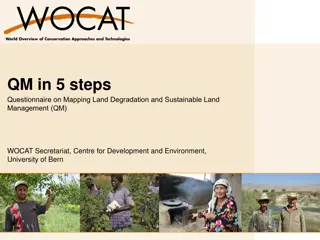Exploring Land Acknowledgements in Academic Institutions: Perspectives from UMass Boston and UMass Amherst
Explore the significance of land acknowledgements in academic settings, focusing on the perspectives of Native faculty at UMass Boston and UMass Amherst. Understand the importance of developing reciprocal relationships with Indigenous communities and engaging in respectful dialogue towards creating meaningful acknowledgements. Learn about the ongoing processes at UMass Boston and UMass Amherst in working with Indigenous stakeholders to craft authentic acknowledgements.
Download Presentation

Please find below an Image/Link to download the presentation.
The content on the website is provided AS IS for your information and personal use only. It may not be sold, licensed, or shared on other websites without obtaining consent from the author. Download presentation by click this link. If you encounter any issues during the download, it is possible that the publisher has removed the file from their server.
E N D
Presentation Transcript
Beyond Land Acknowledgements to Relationships Perspectives from Native faculty at UMass Amherst and UMass Boston In collaboration with Office of the President DEIA Committee
Why are US academic and other institutions developing land acknowledgements? Beginning of an attempt for internal conversations forced dispossession and/or erasure of Indigenous communities and nations where universities are sited Response to emulate institutions external to US (Canada, e.g.) who are now doing this as part of response to truth and reconciliation effort Part of broader efforts to tell more accurate stories of histories of specific institutions role/engagement with Native communities 2
Does it make a difference? Land acknowledgements are necessary, but not sufficient To be meaningful, they must involve reciprocal relationships with Indigenous communities (where the university is sited and those potentially directly harmed by or whose harm benefitted the institution) Land acknowledgements minus Indigenous engagement is performative at best, harmful at worst 3
UMass Boston and its process Writing a statement/acknowledgement is part of a process of relationship My university is in the process of respectful dialogue with Indigenous communities This process involves internal stakeholders (Native faculty, staff, students, allies working in Native studies, administrators) responding to, discussing initiatives, with Indigenous communities When the time is right, we will have an appropriate acknowledgement that recognizes the original peoples who are stewards of our site and our responsibility and relationship to them 4
UMass Boston and Steps Thus Far Meeting with Massachusett at Ponkapoag leaders o https://www.umb.edu/news/recent-news/umass-boston-tribal-leaders-meet-to- explore-partn/ Ecologies of Acknowledgement Exhibit o https://vimeo.com/354699007 Indigenous Boston Harbor Islands Tour with Massachusett at Ponkapoag o https://www.umb.edu/liberal-arts/the-arts-at-umass-boston/university- gallery/upcoming-exhibitions/ 5
UMass Amherst and its process Land Acknowledgement developed in partnership with Native nations in the region Native Advisory Council includes members of those same Native nations Key concerns arose during the process o Native student recruitment, support, retention o Tuition waivers for Native students (model of U of Michigan, U of Maine, U of California system) Research partnerships Center for Braiding Indigenous Knowledges and Science (CBIKS, $30 million/5 years, renewable) Indigenous pedagogy Traditional Teaching Lodge on campus Native American Tribal Liaison* 6
UMass Amherst Policies Native Advisory Council Native American Graves Protection and Repatriation policy o Commitment to remove all ancestors from teaching & research o Policy for bringing any new ancestral remains to campus o Active return of all ancestral remains, ongoing identification of remains in unexpected places Smudging Policy Cultural Tobacco Use Policy 7
What does this mean for UMass System? Each university has its own history in terms of formation and therefore positionality with Indigenous communities Each university has an individual responsibility to do this; one size does not fit all We should share information on this process As state institutions, we have a moral mandate to engage in this work 8
Questions? Thank you for joining us. For more information on UMass President's Office DEIA Committee: https://www.umassp.edu/deia 9


